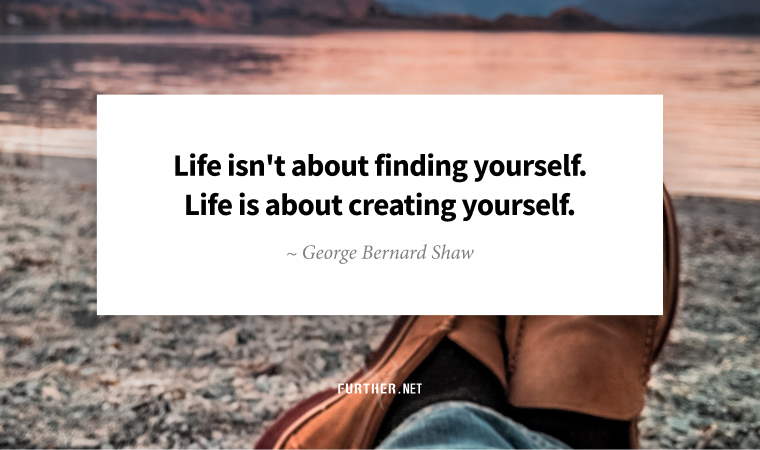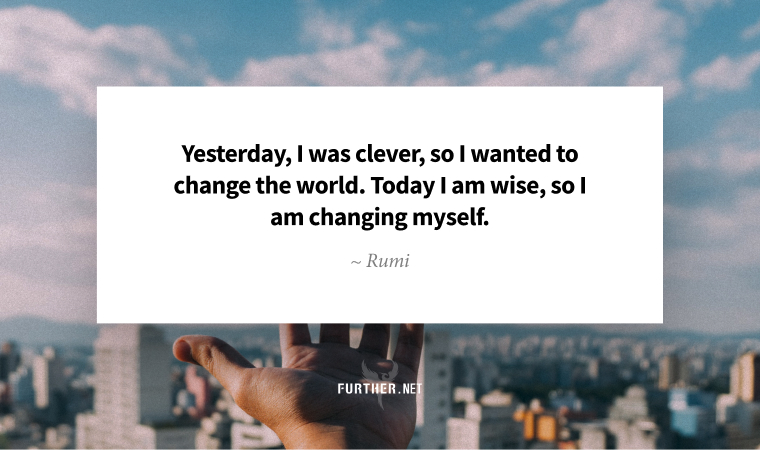Keep the Change in 2024 
Here we are at the beginning of a new year. We make resolutions of change. We break those resolutions. Things go on much the same. It doesn't have to be that way, of course. People do achieve significant life changes, whether at the bright line of a new year or otherwise. So why is it that only 16% of U.S. adults manage to keep their New Year's resolutions? An article in Time offers a novel explanation -- we actually take secret pleasure in not following though on our goals: Our conveniently vague or unrealistic New Year Resolutions fail because they are meant to fail. Because they are made half in jest, in an unguarded moment of carnivalesque freedom. For most of us, this may be the only time of the year when we can afford to mock failure, even as we mock ourselves in the process. The article argues that resolutions bring out our countercultural instincts to reject goals that are essentially status-seeking achievements that society values more than we do. And it is true that our own personal sense of purpose drives our success when it comes to change; doing what we should according to others just doesn't get it done. This is one of the many wonderful things about midlife. You start to realize that resolutions involving should are not worth making in the first place if they're dictated by others or societal standards. And that opens the door to changing in ways that truly matter, because you actually want to change. It's not that resolutions are impossible to maintain and achieve. It's that you need to focus on change that's become mission-critical to you personally. When that happens, change isn't so hard after all. Change Isn't as Hard as You Think (Further Feature) For more on creating lasting change, don't miss Trudi's article down below the news items. And most of all, here's to a great 2024! Keep going- Brian Clark P.S. New to Further? Join us here. Trendy Wellness The start of a new year can be a fun opportunity to try some fresh wellness trends. Whether you're tired of the same old workouts, want closer relationships, or are ready to leave booze behind, experts are predicting 2024 has something for you. The Biggest Wellness Trends for 2024, As Predicted By Experts The Banana Split Last year I introduced protein smoothies into my diet as I took up strength training. My go to was adding a banana, a few strawberries, and a handful of blueberries. You've likely heard that blueberries have flavanols that are good for your heart and cognitive health, but it turns out that the banana negates that nutritional boost. Whoops. New Research Reveals Why You Shouldn't Add a Banana to Your Smoothies I, Not Robot In the age of A.I., grinding away at your desk like a robot is literally a losing proposition. The key is to step away for movement, thought, and rest to spark generative thinking, so that when you return to the work at hand, you are more energized, imaginative, and productive. A New Way to Think About Work for 2024 Work to Travel Astro tourism, eco diving, coolcationing ... these are just three of the new and different ways people will embrace the joy of travel in 2024. I'm accidentally trendy by planning to travel to Dublin to see The Killers in June ("gig tripping"). The Biggest Travel Trends for 2024 (Condé Naste Traveler) How to Make Lasting Changes 
By Trudi Roth We've just completed another revolution around the sun, reminding us once again that change is the only constant. And it's also a great reminder that flimsy resolutions, much like the holiday eve they're traditionally made on, are for amateurs. Intentional change, however, is the stuff of midlife reinvention — what we're all about here at Further. This includes specific changes to starting or stopping behaviors (say, quitting social drinking or starting a consistent exercise regimen) and larger, sweeping shifts like launching a new business or taking a midlife gap year. Ready to take a pro approach to personal evolution and make your resolutions stick for a change? Let's dig in. The Stages of Change The 1970s were a banner time for change — and I'm not talking about the David Bowie classic. Psychologists James Prochaska and Carlo DiClemente, intent on helping people quit smoking, identified a process of change that boiled multiple theories down into a handful of straightforward steps. Their "Transtheoretical Model" (aka "Stages of Change Model") was based on a simple yet ground-breaking epiphany: people change when they're ready to. And, importantly, it's not an overnight deal, which is why New Year's resolutions usually fail. Prochaska and DiClemente initially identified five stages of change, which people cycle through: - Precontemplation: The "denial" phase, where change isn't considered because you don't think you have a problem.
- Contemplation: You're aware making a change could be good, but you're ambivalent because it seems daunting. Uncertainty can drag this phase out.
- Preparation: You're ready to start making a plan, so you do things like writing down your goals, identifying what motivates you, and taking baby steps (i.e., joining a gym)
- Action: You're all the way in, taking concrete steps to enact change. Because this stage is observable, this is often how people characterize making change — but when you skip the first three stages, this phase can easily fall apart.
- Maintenance: The evolution is complete, and you've sustained the change for six or more months. It's an ongoing active stage where you're focused on keeping going.
Eventually, Prochaska and DiClemente added a sixth stage: termination, where people are positive they won't return to an unhealthy behavior. However, this is rare and isn't used in health promotion programs. Failure is an Option Today, the sixth stage is widely used to make room for error. Relapse is so common that it's seen as part of the process. Grant yourself grace, assess where things went sideways, and get back to work. While relapses can be difficult, the best solution is to start again with the preparation, action, or maintenance stages of behavior change. Finally, don't be afraid to ask for help. That alone might be the change you need. The 6 Stages of Change (Verywell Mind) The Transtheoretical Model (Stages of Change) further: flashback  Madness - Our House The Rise & Fall, 1982 Our House is the biggest U.S. hit for English ska band Madness, and also their most fun song. Unless you prefer One Step Beyond, of course. (YouTube)
further: sharing Enjoy this issue? Please forward this email with friends or share on social media. Thank you for sharing Further! | 

No comments:
Post a Comment